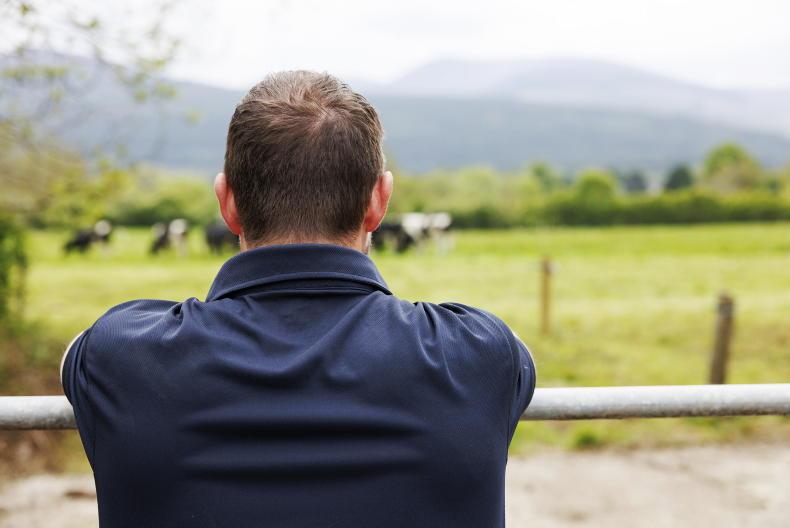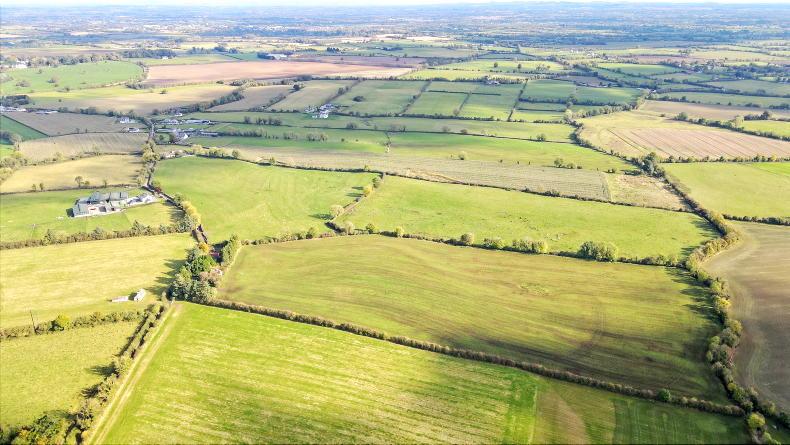The Labour government will not change its inheritance tax raid on agricultural property, a leading legal expert has said.
“I do not expect there to be a change in direction in this policy whilst this government is in power,” Norwich based solicitor Stuart Maggs told the Irish Farmers Journal.
Maggs, who is a partner in legal firm Howes Percival, has been prominent in pressing for changes to the new inheritance tax policy since it was announced in the 2024 Autumn Budget.
“I started this process last October, quite optimistic that we could get some sensible changes through that mitigated the impact on the rural community,” he said.
“I no longer have that optimism.”

Stuart Maggs briefed a committee of MPs about new APR rules last December.
According to Maggs, a recent consultation on the new £1m limit for agricultural property relief (APR) and business property relief (BPR) had no meaningful easements for family farms.
“Having been told about other options that were available to raise tax revenue, the government completely missed the opportunity to listen. There is nothing in there,” Maggs said.
They have not been given, or allowed themselves, the political space to have any climbdown at all
He also suggested that Labour is in a corner politically as senior figures, including prime minister Keir Starmer, have adamantly defended the policy while all other political parties oppose it. “They have not been given, or allowed themselves, the political space to have any climbdown at all,” Maggs said.
Clarity and advice
The new inheritance tax regime is to come into effect from April 2026 and more clarity about the exact rules is expected in the late autumn when legislation is published.
Until then, what advice is Maggs giving his farmer clients who are worried about potential inheritance tax liabilities on their estate?
He said farmers should “put sensible planning into place” and “start taking steps to move things down a generation to the extent that you can”.
However, the Agricultural Law Association fellow makes clear that changing ownership of assets will not always remove the risk of inheritance tax.
He said a key issue in family farming scenarios is a rule known as “reservation of benefit”.
“If you give something away, but continue to enjoy a benefit of it, then for inheritance tax purposes, you are taxed as if you never gave it away in the first place,” Maggs explained.
He said this is a major concern with family farms because it is difficult for the older generation to completely cut ties with the farm business.
He gave the example of a widow who depends on farm income for a pension, lives in a dwelling house within the farmyard, and still helps out on the farm most days.
“If she gives the farm away but keeps on getting money from it, then unless they are really careful about how they do it, she is taxed like she still owned it,” Maggs said.
Avoid complicated inheritance tax plans
Farming families should avoid putting complicated arrangements in place in a bid to limit inheritance tax liabilities, agricultural solicitor Stuart Maggs has advised.
“What happened back in the 1960s and 1970s when inheritance tax was very high was some people got wrapped up in complex structures which to be frank, they didn’t really understand.
Let farmers farm
“At this stage, I am concerned that there could be bright sparks who say, ‘If you put this arrangement in place, you halve the value of your farm and avoid inheritance tax’,” Maggs said.
He said the key problem is that, although these structures may be effective for inheritance tax, it could make farms “a nightmare to run”.
“My view with tax planning has always been that you need to have simple structures in place that allow people to do the things they are good at.
“Let farmers farm,” Maggs said.
“Do not force them to run unnecessary companies or manage unnecessary trusts which ends up adding layers of cost and makes their day job more difficult.”
Another important consideration is the view of lenders, as complicated farm ownership can lead to issues with existing loans or put banks off lending money in the future.
“We have enough problems with banks for our clients when they have one straight forward trust in place because you are often getting third party charges or the land isn’t owned by the people who are doing the farming,” Maggs said.
Tax worries stop farm investment
Concern within farming families about potential inheritance tax bills is stopping investment on UK farms, according to agricultural solicitor Stuart Maggs.
“At the moment, people are trying to build up a fund to keep the farm in the family and with investment dropping, that has a significant ongoing effect in the rural economy,” he said.
“My concern is that will have a much bigger impact on the Treasury take than the money they are going to bring in from inheritance tax,” Maggs added.
The Labour government will not change its inheritance tax raid on agricultural property, a leading legal expert has said.
“I do not expect there to be a change in direction in this policy whilst this government is in power,” Norwich based solicitor Stuart Maggs told the Irish Farmers Journal.
Maggs, who is a partner in legal firm Howes Percival, has been prominent in pressing for changes to the new inheritance tax policy since it was announced in the 2024 Autumn Budget.
“I started this process last October, quite optimistic that we could get some sensible changes through that mitigated the impact on the rural community,” he said.
“I no longer have that optimism.”

Stuart Maggs briefed a committee of MPs about new APR rules last December.
According to Maggs, a recent consultation on the new £1m limit for agricultural property relief (APR) and business property relief (BPR) had no meaningful easements for family farms.
“Having been told about other options that were available to raise tax revenue, the government completely missed the opportunity to listen. There is nothing in there,” Maggs said.
They have not been given, or allowed themselves, the political space to have any climbdown at all
He also suggested that Labour is in a corner politically as senior figures, including prime minister Keir Starmer, have adamantly defended the policy while all other political parties oppose it. “They have not been given, or allowed themselves, the political space to have any climbdown at all,” Maggs said.
Clarity and advice
The new inheritance tax regime is to come into effect from April 2026 and more clarity about the exact rules is expected in the late autumn when legislation is published.
Until then, what advice is Maggs giving his farmer clients who are worried about potential inheritance tax liabilities on their estate?
He said farmers should “put sensible planning into place” and “start taking steps to move things down a generation to the extent that you can”.
However, the Agricultural Law Association fellow makes clear that changing ownership of assets will not always remove the risk of inheritance tax.
He said a key issue in family farming scenarios is a rule known as “reservation of benefit”.
“If you give something away, but continue to enjoy a benefit of it, then for inheritance tax purposes, you are taxed as if you never gave it away in the first place,” Maggs explained.
He said this is a major concern with family farms because it is difficult for the older generation to completely cut ties with the farm business.
He gave the example of a widow who depends on farm income for a pension, lives in a dwelling house within the farmyard, and still helps out on the farm most days.
“If she gives the farm away but keeps on getting money from it, then unless they are really careful about how they do it, she is taxed like she still owned it,” Maggs said.
Avoid complicated inheritance tax plans
Farming families should avoid putting complicated arrangements in place in a bid to limit inheritance tax liabilities, agricultural solicitor Stuart Maggs has advised.
“What happened back in the 1960s and 1970s when inheritance tax was very high was some people got wrapped up in complex structures which to be frank, they didn’t really understand.
Let farmers farm
“At this stage, I am concerned that there could be bright sparks who say, ‘If you put this arrangement in place, you halve the value of your farm and avoid inheritance tax’,” Maggs said.
He said the key problem is that, although these structures may be effective for inheritance tax, it could make farms “a nightmare to run”.
“My view with tax planning has always been that you need to have simple structures in place that allow people to do the things they are good at.
“Let farmers farm,” Maggs said.
“Do not force them to run unnecessary companies or manage unnecessary trusts which ends up adding layers of cost and makes their day job more difficult.”
Another important consideration is the view of lenders, as complicated farm ownership can lead to issues with existing loans or put banks off lending money in the future.
“We have enough problems with banks for our clients when they have one straight forward trust in place because you are often getting third party charges or the land isn’t owned by the people who are doing the farming,” Maggs said.
Tax worries stop farm investment
Concern within farming families about potential inheritance tax bills is stopping investment on UK farms, according to agricultural solicitor Stuart Maggs.
“At the moment, people are trying to build up a fund to keep the farm in the family and with investment dropping, that has a significant ongoing effect in the rural economy,” he said.
“My concern is that will have a much bigger impact on the Treasury take than the money they are going to bring in from inheritance tax,” Maggs added.











SHARING OPTIONS